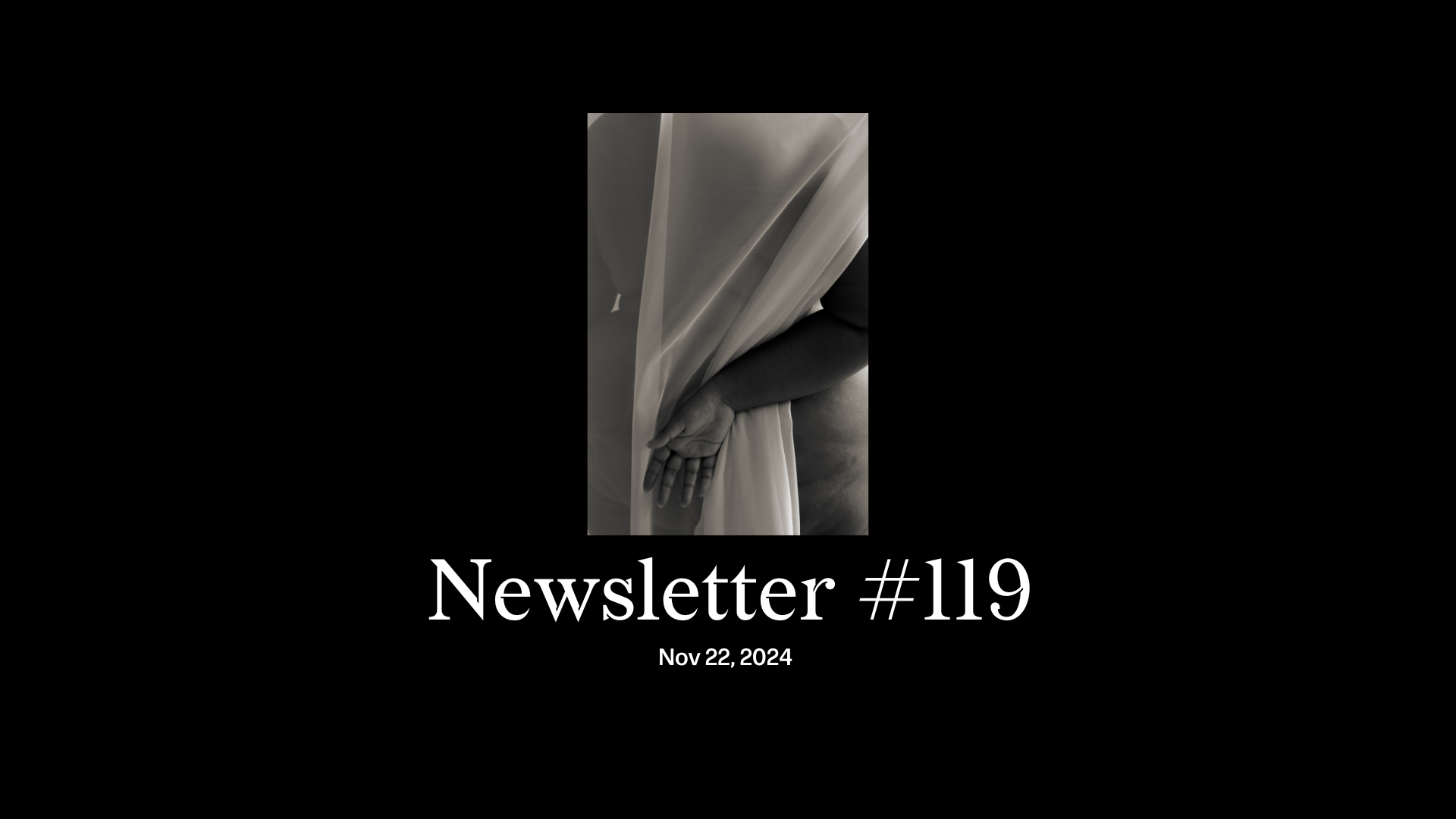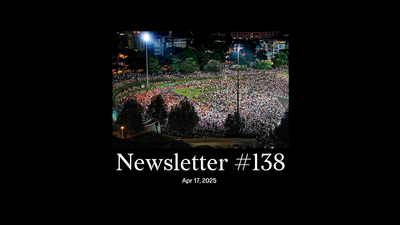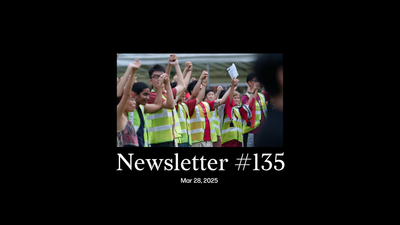Dear reader,
630-830pm, Dec 3rd: launch of Jom’s print issue #2. Please register here (free) to join us at the casual poet library for the launch of our second print issue. It’s going to be chill, just a chance for you to mingle with the Jom team at our last event of the year. We’ll have some drinks and snacks available outside the library, which is in a void deck in Bukit Merah. Come and go as you please.
I’m really excited about this issue! Arin Fong, formerly of Ethos, was the editorial lead on it, with lots of help from Abhishek, our head of content. When I saw the final layout, I told them that I’d recommend it to anybody interested in Ecology, Music, or Solidarity—our three themes this year—not just in Singapore, but in general. Read more about the content, and register for the launch, here.
For those of you who want to order it through our web shop, look out for the link in an upcoming newsletter.
“Singapore This Week”. In our weekly digest, we discuss the crisis facing Singapore’s hawkers; self-radicalised youth; encouraging news about low-income families on aid; efforts to improve foreign worker dormitory conditions; the US’s return of historical artefacts to Thailand; two Singaporean, Hokkien-language films gaining attention in China; a new initiative to help women return to the tech workforce; and more.
“Essay”. Next Monday is The International Day for the Elimination of Violence against Women. Ahead of that, Cherry Tan has published her second essay for Jom, “Consent, trauma, and healing: a survivor’s (messy) story”. I think it should be required reading for all sexually active Singaporeans, who may be contending with knotty questions around sexual consent, but especially parents, who are raising the next generation in a society starved of honest dialogue on sex. Cherry opens her essay:
“As a survivor of sexual assault, I’ve learned that trauma, healing, and the memories of violence don’t operate within neat paradigms, don’t conform to any intuitive, linear structure. I was raped a few years ago by a person I’ll call Sami, a software developer now based in Seattle. But I’d somehow been able to find some semblance of closure a lot more straightforwardly than the single time I got molested, almost a year after my encounter with Sami.”
You may recall Cherry’s first piece, a review of Kishore Mahbubani’s memoir. Well before she wrote that, she pitched us this piece. Cherry and I met for the first time earlier this year, over Zoom, to discuss it. I didn’t quite know what to expect and, thinking that it might be better to have other women in the room, asked my colleagues Jean and Waye to join the call.
I remember feeling quite shaken, and frankly at a loss for words, hearing Cherry recount these incidents of rape and molest. She was perfectly calm, having had time to sufficiently process it before approaching Jom. (Though, as you’ll read, for survivors like Cherry, the reverberations of violent episodes can be felt sporadically through unlikely channels.)
From the start, Cherry’s intention was clear: offering guidance through her own lived experiences so that other people can have healthier, consensual relationships. She provides definitions, frameworks, quotes from consent educators in Singapore, and much more, in her effort to help us understand one of life’s most elemental relational questions: what exactly does the other person want?
There’s a lot about the current discourse around consent that is unfamiliar to me. It was educational. Reading it, I felt naive, but also extremely privileged that I’ve never been in that position. It’s rare to meet somebody willing to speak candidly about these traumatic episodes. Cherry was supposed to use a pseudonym, but earlier this week told us she’s comfortable using her real name.
For your courage, candour, and clarity—asserting the survivor’s right to their own narrative, to their own path to healing—thank you, Cherry.
Read it, forward it, we’re keeping it outside the paywall till Monday, November 25th, The International Day for the Elimination of Violence against Women.
Jom bekerjasama,
Sudhir Vadaketh
Editor-in-chief, Jom
Behind Jom’s art, with Charmaine Poh
This week, we’re featuring commissioned photography by Rachel Loh. Rachel is known for her intimate portraiture centred on women and femininity, an approach we felt would complement this week’s essay. Visual culture around trauma can lean heavily into the act of violence or its aftermath; we wanted to position the focus on the survivor and the potential for healing. These portraits of a body nestled in the soft embrace of sheer fabric play with metaphors of comfort, safety and privacy.
If you’ve enjoyed our newsletters, please scroll to the bottom of this page to sign up to receive them direct in your inbox.







